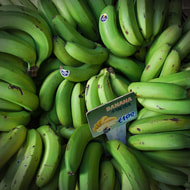
One obvious argument against an all fruit diet is that humans are not apes. It has been noted by earlier natural diet advocates, the natural hygienists that many people can’t do well on even two thirds of their diet being fruit.
Like most extreme diets that lack substantial amounts of critical nutrients, people can be okay for limited amounts of time. The two most common repercussions of long-term attempts at fruitarianism are usually that the teeth are the first to go, then people's blood-sugar processing abilities, along with nutritional deficiencies.
One of the reasons that people may do well at first is because they are living off of past nutritional reserves. When the stored reserves run out, the game's over. This is a similar occurrence that happens with vegan diets and vegan macrobiotic diets. My experience has been that eventually diets missing nutrients have serious health consequences including life threatening diseases if a person managed to stay on these types of diets for years or decades.
Fruit diets and high veggie diets are sometimes called clean diets. It is not enough for a diet to be "clean"-- it must also be a sufficient diet. Fruitarianism and near-fruitarianism are the worst possible case, because in addition to progressive long-term deficiencies, the body's insulin-production capabilities are being simultaneously overwhelmed with the high carbohydrate load in the form of higher glycemic-index foods containing simpler sugars like glucose, sucrose, and fructose.
Advocates of "fruitarianism" frequently change their definition of it over time. Like other restrictive diets, many who initially promote a strict diet or fruit or all vegan diets, are forced to back off and begin allowing the use of some nuts, seeds, and green vegetables or other foods. This may extend the period that they can maintain their regimen, but it doesn't remove the underlying problem of the long-term consequences of excessive sugar consumption and/or hyperinsulinism, not to mention low intake of B-vitamins, certain minerals, etc., that are likely to result if the diet is continued long enough.
Some fruitarian gurus weren't actually practicing what they preached, but followers who did ran aground. Over the years, what they discovered was that none of them--and this included famed fruitarian advocates like Johnny Lovewisdom, Walter Siegmeister (pen name Raymond Bernard), and Viktoras Kulvinskas--were actually living on fruitarian diets, even as they defined the diet for themselves. I find this interesting because it was the same case with well-known natural health macrobiotic teachers. Many were known to frequent restaurants and eat meat, eggs, dairy products, desserts and fish while encouraging students to be very strict in a grain and vegetables vegan style of eating. Like the fruitarians, the students would suffer from many health problems once their storehouses of nutrients were exhausted.
An all fruit diet is a way to create serious malnutrition of multiple nutrients including protein. No humans ever ate such a diet. Apes have a different physiology than human beings. Apes are equipped with a rumen, a large stomach that breaks down raw food. Humans do not have a rumen. The ape’s diet consists of a huge amount of leafy greens and fruits humans could not and should not consume in a day.
Extreme diets such as all fruit or all vegetable diets will create illness and food obsessions or eating disorders. This has been documented at this excellent site: http://www.beyondveg.com/index.shtml. it is interesting to delve into the false arguments made for vegan and fruitarian diets. They are very similar to my experience of some of the arguments made for macrobiotic vegan diets. Many theories for macrobiotic vegan diets don’t hold up.
Several cultures around the world have been studied for their great longevity. All these cultures ate grains at almost every meal, natural animal foods every day, and none lived on fruit alone. Fruit played a part in healthy diets. In colder climates, fruit was cooked and eaten dried. In hot climates, it was mostly consumed raw but in moderation.
Starches are not mucus forming. This is obsolete idea promoted by early raw foods advocates, who mostly died at younger ages. There is no science behind the theory that starches create mucus or that animal proteins in moderate amounts (4-6 oz or even greater amounts) hurt the kidneys. These are all pseudo-scientific ideas.
The natural hygienists were the first to recommend a raw diet. After more than 100 years of natural hygiene teachings and experiences, a group of natural hygienists is speaking up against total vegetarianism. http://naturalhygienesociety.org/diet2.html
Humans are designed to eat cooked foods as their main foods with raw being a choice depending on the weather and climate. In hot climates, small amounts of raw fruits were eaten but never as a staple. The science is explained in this excellent book, Catching Fire, How Cooking Made Us Human by Richard Wrangham.
Read Catching Fire for the summary of the theory that humans do not have a stomach with bacteria in it, a rumen, to break down the fiber in raw foods. All animals that eat raw vegetable diets have rumens. The cow has four. Humans cannot extract many nutrients from fibrous raw foods. Small amounts in one’s diet are fine mostly for its cooling effect on the body in hot weather.
One twentieth century macrobiotic theory that does hold up is presented according to the science in Catching Fire. Wrangham makes an excellent argument backed by decent science that humans are not designed to eat a high raw foods diet. Twentieth century macrobiotic teachings presented the same idea but without the better explanations leading to further mistakes down the road about raw food consumption.
If a person decides to be vegetarian or vegan, I have suggestions that can keep one healthier on my website. https://www.macrobiotic.com/how-to-be-safe-on-a-vegan-diet-not-vagen.html



 RSS Feed
RSS Feed